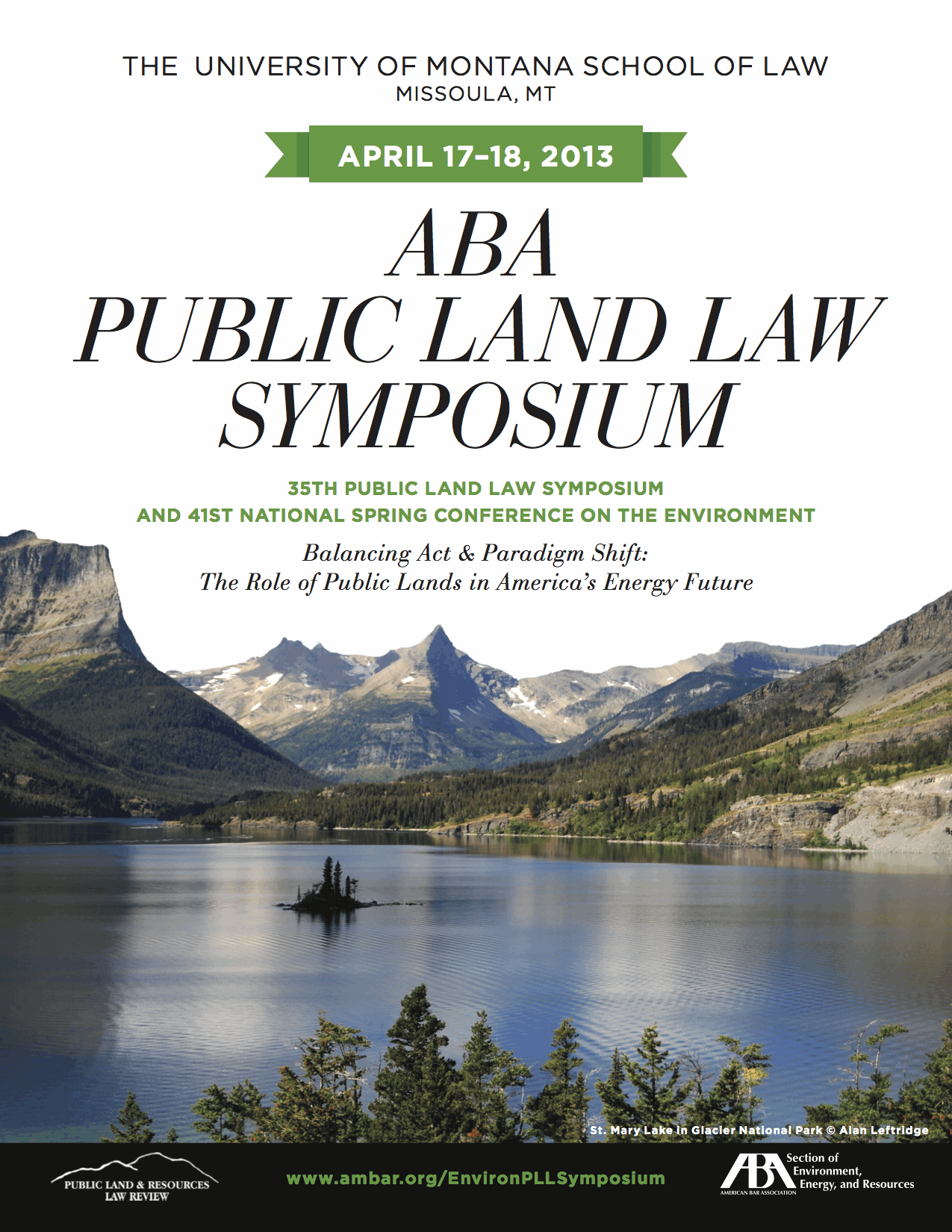
Rivers: Balancing Hydropower Development and Ecosystem Preservation
Location
University Center Ballroom
Start Date
18-4-2013 1:30 PM
End Date
18-4-2013 3:30 PM
Description
The rivers of America provide a substantial amount of renewable energy through the use of hydroelectric facilities, and there are competing calls for further development of these resources and restoration of the free flowing rivers they impact.
This panel will consider whether existing legal regimes and regulatory structures are achieving the balance between calls for increased development of renewable resources and the importance of holistic aquatic ecosystems. Rivers are viewed as a potential new source of low- carbon electricity, but the necessity to mitigate the negative impacts of hydroelectric development, transmission, and other energy development is a common concern.
Panelists will address utilizing existing legal tools to create new approaches to how we utilize, manage, and preserve American rivers while tapping their energy resource potential. Topics will also include the development of cooperative management practices within the existing legal framework, innovative development of the hydroelectric resource, and whether existing laws like the Wild and Scenic Rivers Act strike a proper balance of preserving some of the nation’s most ecologically important riverine resources and facilitating use of the federal lands to meet our energy needs.
Moderator
Constance L. Rogers, Davis Graham & Stubbs, LLP, Denver, CO
Wild & Scenic Rivers Article Executive Summary
Rivers: Balancing Hydropower Development and Ecosystem Preservation
University Center Ballroom
The rivers of America provide a substantial amount of renewable energy through the use of hydroelectric facilities, and there are competing calls for further development of these resources and restoration of the free flowing rivers they impact.
This panel will consider whether existing legal regimes and regulatory structures are achieving the balance between calls for increased development of renewable resources and the importance of holistic aquatic ecosystems. Rivers are viewed as a potential new source of low- carbon electricity, but the necessity to mitigate the negative impacts of hydroelectric development, transmission, and other energy development is a common concern.
Panelists will address utilizing existing legal tools to create new approaches to how we utilize, manage, and preserve American rivers while tapping their energy resource potential. Topics will also include the development of cooperative management practices within the existing legal framework, innovative development of the hydroelectric resource, and whether existing laws like the Wild and Scenic Rivers Act strike a proper balance of preserving some of the nation’s most ecologically important riverine resources and facilitating use of the federal lands to meet our energy needs.
Moderator
Constance L. Rogers, Davis Graham & Stubbs, LLP, Denver, CO
